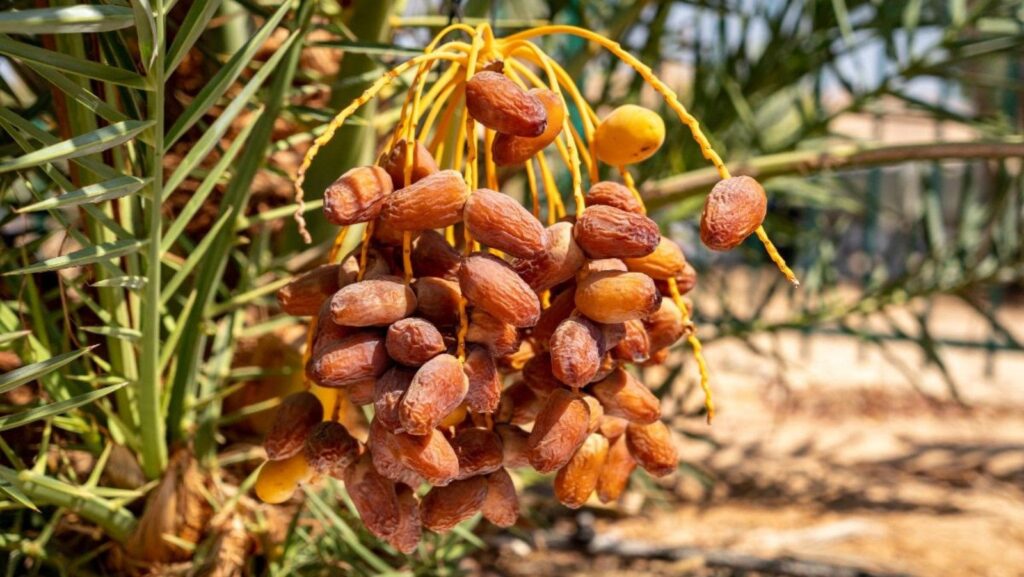Israeli Scene
Life + Style
A Date With Destiny
In September 2020, after 15 years of cultivation, Israeli scientists at the Arava Institute of Environmental Studies and the Louis L. Borick Natural Medicine Research Center at Hadassah Hospital Ein Kerem finally tasted the fruit that had been harvested from biblical-era date palm trees that they had brought back from extinction. Those trees—named Adam, Boaz, Hannah, Jonah, Judith and Uriel—grew from 2,000-year-old seeds found decades earlier during archaeological excavations near Masada. Ultimately, it was the Hannah tree that bore fruit, 111 dates to be precise.

This ancient date is said to be nothing like the soft, fudgy and internationally popular Medjool variety, of which Israel produces 90 percent of the world’s supply. To the contrary, “the dates we harvested from Hannah were semi-dry, big, reddish-blond in color and tasted like honey,” according to Elaine Solowey, the director of the Center for Sustainable Agriculture at the Arava Institute, who headed the project. These dates are reminiscent of the firmer, more complex varieties such as Deglet Noor and Halawi.
Sweeten Your Tu B’Shevat with Date Strudel Cookies
Beyond the cultural significance of re-establishing dates from the era when the Maccabees lived in the region, there is an agricultural importance, too. Today, dates grown commercially represent only three varieties. Since new date palms are replanted from offshoots, each variety is not very genetically diverse. The Judean dates cultivated by Solowey will reintroduce a type of date that has not been seen or eaten in two millennia, adding to the richness and variety of dates.










 Facebook
Facebook Instagram
Instagram Twitter
Twitter
Leave a Reply